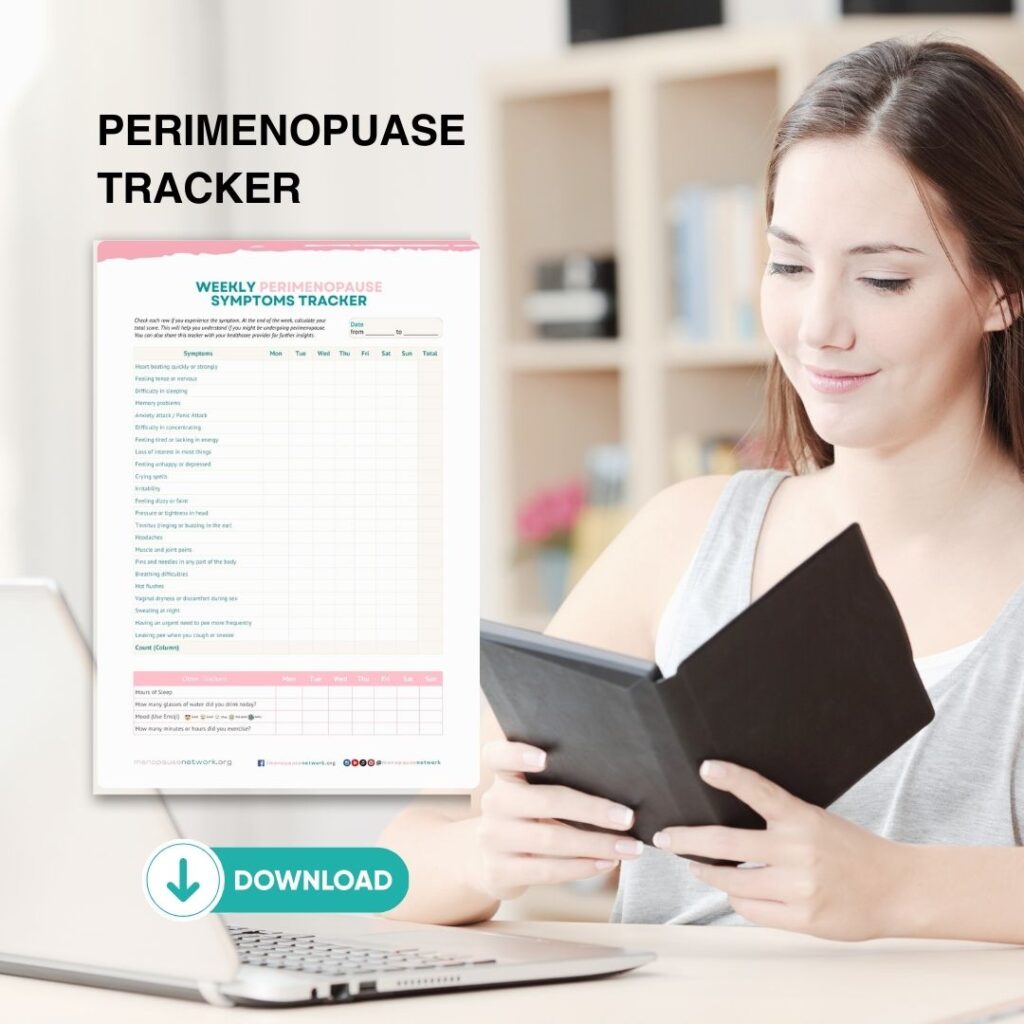Is Something Off? 8 Subtle Signs You Might Be Starting Perimenopause

Pay attention, ladies!
Ever feel like your body is sending you mixed signals? One minute you’re on top of the world, and the next, you’re not sure what’s going on. If you’re in your 40s (or even late 30s), you might be experiencing the early stages of perimenopause. This transitional phase can sneak up on you, blending seamlessly into the background of busy life.
Suddenly, those little quirks and changes in your body start to add up, making you wonder if something more significant is happening. You’re not alone! Understanding these subtle signs can help you feel more in control. Let’s dive into the clues your body might be giving you.
1. Mood Swings
Remember those teenage years when your emotions were all over the place? Perimenopause can bring back a bit of that drama. If you’re feeling irritable, anxious, or downright weepy for no apparent reason, it could be a sign.
2. Sleep Troubles
Counting sheep more often than you’d like? Hormonal fluctuations can make it hard to fall asleep or stay asleep. If you’ve started waking up in the middle of the night or feeling restless, it might be perimenopause at play.
3. Irregular Periods
One of the biggest clues that perimenopause is starting is changes in your menstrual cycle. Your periods might become lighter, heavier, more frequent, or less frequent. If Aunt Flo is being unpredictable, take note.
4. Hot Flashes and Night Sweats
Feeling like someone turned up the heat out of nowhere? Hot flashes and night sweats are classic symptoms. You might find yourself stripping off layers during the day or waking up drenched at night.
5. Fatigue
Unexplained tiredness can be a frustrating sign of perimenopause. Even if you’re getting enough sleep, you might feel exhausted during the day. Hormonal changes can zap your energy levels.
6. Changes in Libido
Noticing a change in your sex drive? Hormonal shifts during perimenopause can affect your libido, either increasing or decreasing your interest in sex.
7. Memory Lapses and Difficulty Concentrating
Ever walk into a room and forget why you’re there? Or find it hard to focus on tasks? Cognitive changes, like memory lapses and difficulty concentrating, can also be part of perimenopause.
8. Weight Gain and Bloating
Finding it harder to button those jeans? Hormonal changes can lead to weight gain, especially around your midsection. Bloating can also be more frequent and uncomfortable.
Practical Tips for Managing Perimenopause Changes
With a few practical tips, you can manage these changes more effectively. Here are some strategies to help you feel your best during this transition:
1. Maintain a Healthy Diet
Eating a balanced diet rich in fruits, vegetables, whole grains, and lean proteins can help stabilize your hormones and improve your overall well-being. Incorporate foods high in phytoestrogens, like flaxseeds, soy, and nuts, which can mimic estrogen in the body and alleviate some symptoms.
2. Stay Active
Regular exercise can help manage weight gain, boost your mood, and improve sleep. Aim for at least 30 minutes of moderate activity most days of the week. Activities like walking, yoga, and swimming are great options.
3. Prioritize Sleep
Establish a bedtime routine to improve your sleep quality. Create a relaxing environment, limit screen time before bed, and avoid caffeine and heavy meals in the evening. If sleep disturbances persist, consider talking to your doctor about possible solutions.
4. Manage Stress
Find stress-reducing activities that work for you, such as meditation, deep breathing exercises, or hobbies you enjoy. Reducing stress can help manage mood swings and improve your overall sense of well-being.
5. Stay Hydrated
Drinking plenty of water can help with bloating and keep your body functioning properly. Aim for at least eight glasses a day, and more if you’re active or live in a hot climate.
6. Consider Supplements
Certain supplements, like calcium, vitamin D, and magnesium, can support bone health and overall wellness during perimenopause. Always consult with your healthcare provider before starting any new supplements.
7. Keep Track of Symptoms
Tracking your symptoms can help you identify patterns. This information can be invaluable when discussing your health with your doctor and finding the best ways to manage your symptoms.

Free Download
NO SIGNUP NEEDED
Perimenopause Tracker
- Monitor Symptoms: Track physical and emotional changes daily.
- Identify Patterns: Discover triggers and patterns in your symptoms.
- Improve Communication: Share accurate details with your healthcare provider.
- Take Control: Empower yourself with insights to make informed decisions about your health.
How Do You Know It’s Perimenopause and Not Something Else?
It’s important to remember that while these symptoms are common during perimenopause, they can also be indicative of other health conditions. Here’s how to differentiate:
- Consult Your Doctor: The most reliable way to determine if you’re experiencing perimenopause is to consult with your healthcare provider. They can perform tests to check hormone levels and rule out other conditions.
- Track Symptoms: Keeping a detailed log of your symptoms using a tracker can help identify patterns that are consistent with perimenopause. Share this log with your doctor for a more accurate diagnosis.
- Consider Your Age and Medical History: Perimenopause typically starts in your 40s, but can begin in your late 30s. If you have a family history of early menopause, you might start experiencing symptoms sooner.
- Rule Out Other Conditions: Symptoms like fatigue, mood swings, and weight gain can also be related to thyroid disorders, depression, or other medical issues. Your doctor can help rule out these conditions through appropriate tests.
- Hormone Testing: Blood tests can measure levels of hormones like estrogen and follicle-stimulating hormone (FSH). Elevated FSH levels can indicate that you’re in perimenopause.
Takeaway
Navigating the journey through perimenopause can seem daunting, but with the right tools and knowledge, you can manage this transition with confidence and ease. Recognizing the signs and understanding your body’s changes are the first steps in taking control of your health. By tracking your mood swings, sleep disturbances, irregular periods, and other symptoms, you can gain clearer insights into what your body is experiencing. This information is crucial for communicating effectively with your healthcare provider, leading to more personalized advice and treatment options.
Additionally, practical lifestyle changes can make a significant difference. Maintaining a balanced diet, staying active, prioritizing sleep, managing stress, and staying hydrated are all essential strategies that can help alleviate the symptoms of perimenopause. Supplements, when recommended by your doctor, can also support your health during this phase.
It’s important to remember that while perimenopause is a natural part of aging, it’s not something you have to endure without support. With the right approach, you can turn this challenging time into an opportunity for greater self-awareness and wellness. So stay informed, track your symptoms, and take proactive steps towards a healthier, more balanced you.
